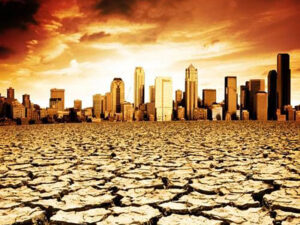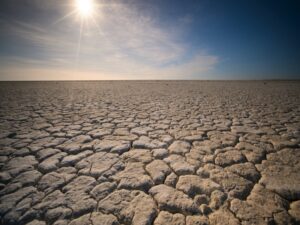Having met and worked with lots of environmentalists, what has surprised me is how many of them are egomaniacs. It’s as if the ecological crisis has been designed just so they can solve it.
These people are, of course, a product of the social system that moulded them. There are plenty of egomaniacs in many different fields. Yet it’s not hard to see why so many egomaniacs are attracted to solving the environmental challenges we face. It’s a problem that involves everyone and everything, you can’t really get a bigger challenge if you thought of one. And so those with enormous egos are drawn to the enormity of the challenge.
What drives them is an insatiable quest to appease their own egos.
The problem solving the problem
In a society that celebrates the individual, it’s little wonder that many peoples egos have exploded out of control. They believe themselves to be special, they are unique individuals unlike any other, and they are important — and everyone needs to know just how important.
What they fail to recognise, and what the system we live in doesn’t seem to want to acknowledge, is the fact that while, yes, we are individuals, we are entirely dependent on society to function.
Humans are not individual units in service of themselves. They are part of a fantastically complex system of which they are merely one part. It is only through society that the individual is able to have their needs met.
This is the underlying issue with so many egomaniacs being part of the environmental movement. They are a symbol of the problem, and cannot be part of any solution. Because if they are we will merely be transferring an aspect of the problem into the future.
It’s not about you
What these egomaniacs don’t seem to get is that you’re not that important. You are not going to change the world by yourself. The challenge is far too big for any individual to solve. What it requires in an ‘eco’ approach, where everyone sees themselves as part of a huge movement of change.
It is the ego of humanity that has shaped our relationship with the natural world. We view it as something we have dominion over. We control the natural world and do with it what we will. Our attitude to nature translates into a disastrous relationship with it. We pillage it, blow it up, redirect it, poison it, all for our own gain.
The idea nature has intrinsic value is not acknowledged because there is a hierarchy of importance, of which humanity (naturally) sits at the top. Everything in the natural world is in service to humans.
It’s little wonder so many people suffer from ego problems because humanity is a product of ego — we see ourselves as being better than other lifeforms. Everything is in the service of humans. The intrinsic value of the natural world isn’t acknowledged because what use is the environment if we can’t make use of it?
Nature is only of value when it gets converted into resources because resources can be priced and sold on the market. And it is only in markets where nature has relevance because it is in markets where nature becomes economised.
The humble guardian
We are not ‘above’ or superior to nature, we are entirely dependent on it for our existence. And so to create a sustainable society that works in harmony with nature we must reshape our relationship with the natural world. Rather than a belief we have dominion over nature, we must see ourselves as embedded within it.
To have any hope of creating a thriving society that works in harmony with the environment, what we need is a reinterpretation of our role in it. Yes, humans are different to other life forms in that we can shape the world around us to suit our needs. Our technology gives us god-like powers. We have created cities that have become the human playground. We control and shape the world to suit our needs.
Our relationship with nature must be reshaped from arrogant controllers to guardians who show humility and respect to nature.
We should be in service to the natural world because it provides everything we need to flourish, and it asks nothing in return. Only by reshaping our toxic relationship with nature can we begin to become guardians and protectors of it.
In no way does the ego belong in this vision of the world.
So here lies the irony of so many environmentalists believing they are going to change the world all by themselves. They are an extension of the problem. To solve the challenges we face these egomaniacs can’t be part of any future where the eco begins to dominate attitudes and beliefs.
Unfortunately, the ego has become so embedded in the way we perceive the world, that nothing short of a complete paradigm shift will solve the challenges we face. Because underlying the ecological crisis is how we see the world. It’s our beliefs about the world around us and our place in it that leads to destructive behaviour. Ego is an extension of that problem, and many environmentalists merely symbolise the problem we are dealing with, not the solution.



